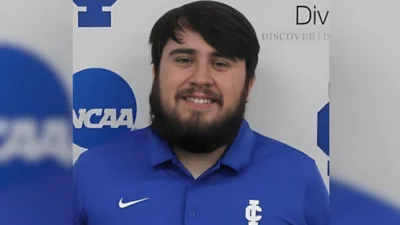State Representative Jeff Keicher (IL) | Representative Jeff Keicher (R) 70th District
State Representative Jeff Keicher (IL) | Representative Jeff Keicher (R) 70th District
Every spring, the Tidal Basin in Washington, D.C., becomes a focal point as cherry blossoms bloom, marking the arrival of the season. These trees were a gift from Yukio Ozaki, Tokyo's mayor in 1912, symbolizing goodwill between Japan and the United States.
The gift was facilitated by Dr. Jokichi Takamine, a Japanese American chemist linked to Illinois. Born in Japan in 1854, Takamine made significant scientific contributions throughout his career. He moved to America in 1884 and played a key role in advancing whiskey production through his enzyme discovery.
Takamine's work extended beyond whiskey. In New York, he isolated epinephrine with Dr. John Jacob Abel in 1901, impacting healthcare significantly. His discovery gained attention when boxer Gene Tunney endorsed its medical uses: "Adrenalin Chloride is absolutely necessary in every boxer’s corner when engaged in combat," Tunney stated.
Beyond science, Takamine fostered U.S.-Japan relations by organizing the Japan Society and facilitating the planting of cherry blossom trees near Grant’s Tomb and later at West Potomac Park. Although the initial batch failed due to insects, subsequent plantings succeeded under First Lady Nellie Taft's oversight.
The cherry blossoms have since become enduring symbols of friendship between the two nations. During World War II, they represented hope for renewed ties post-conflict—a hope realized over generations.
In 2012, Daiichi Sankyo Company celebrated this legacy with a documentary on Takamine's life titled “The Story of Jokichi Takamine: Japan’s Goodwill Ambassador.” Cherry blossoms also symbolize friendship locally; Chicago's Jackson Park features nearly 200 such trees.
State Representative Jeff Keicher emphasized their cultural significance: “I’ve learned that in Japanese culture...the value of friends coming together to enjoy this beautiful occasion,” he said after attending an event celebrating Hanami.
Dr. Takamine received recognition for his contributions on both sides of the Pacific. In 1985, he was named one of Japan's greatest inventors by its Patent Office. Last year, he was posthumously inducted into the National Inventors’ Hall of Fame for his work with epinephrine.
Dr. Jokichi Takamine passed away in 1922 with over 20 patents to his name and is buried at Woodlawn Cemetery in Bronx, New York.






 Alerts Sign-up
Alerts Sign-up